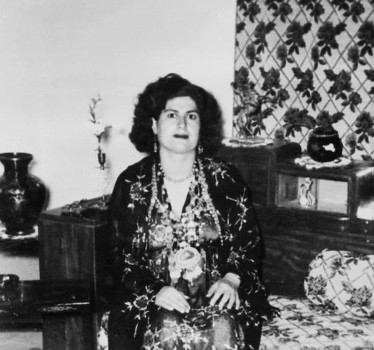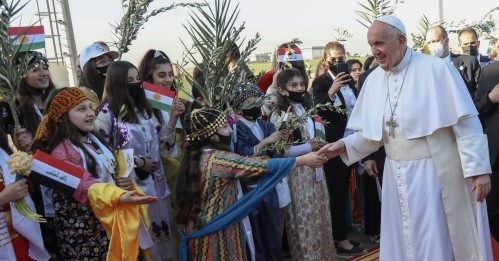From November 19 to 23, 2024, the 2024 Middle East Peace and Security (MEPS) Forum called “The Paradox of Peace in the Middle East” took place in Duhok. The forum aimed to address the region’s most pressing challenges.
“We convene at a defining moment for the Middle East. I look forward to the next two days of constructive dialogue and exchanges of views,” Kurdistan Regional Government (KRG) Prime Minister Masrour Barzani posted on X.
“I trust that all viewpoints and decisions developed during these two days will be made available to decision-makers in the Kurdistan Region, Iraq, and the broader region for their benefit and consideration,” Prime Minister Barzani said in a welcoming address on November 22.
“This marks the fifth time that this conference has been hosted by the American University in Duhok (AUK). I commend the organizers and hope we can continue to expand and enhance this forum in the years ahead.”
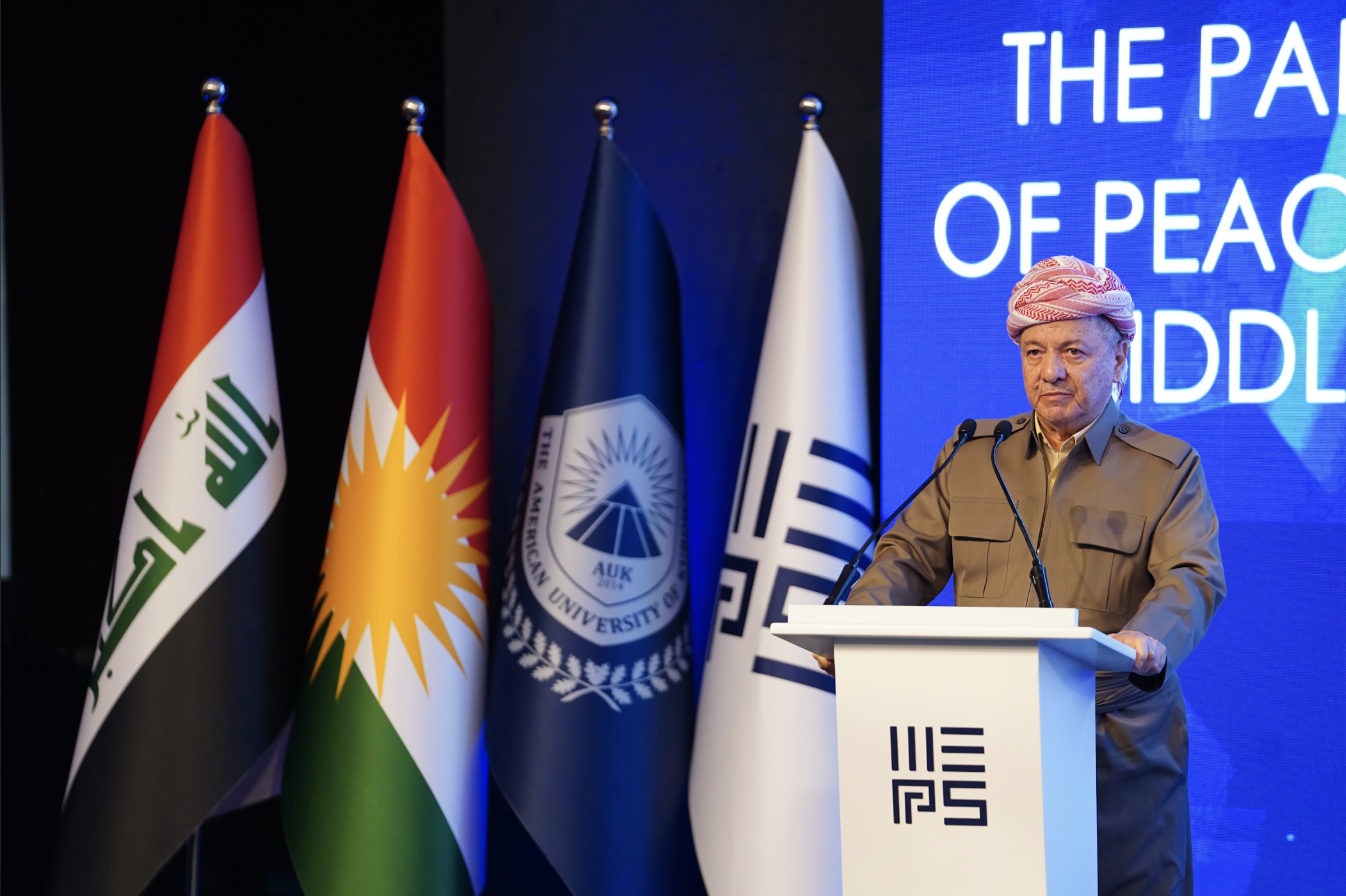
Notable participants, forward-thinking ideas
This year’s MEPS Forum featured prominent leaders, including President Masoud Barzani, Iraqi President Latif Rashid, Iraqi Parliament Speaker Mahmoud al-Mashhadani, former Turkish Prime Minister Ahmet Davutoglu, and former Iraqi Prime Minister Haider al-Abadi.
The forum also welcomed experienced Western diplomats, such as Stephen Hitchen, the UK Ambassador to Iraq; Patricia Haslach, former U.S. Ambassador to Ethiopia and Assistant Secretary of State; Jon Wilks, former UK Ambassador to Iraq, Qatar, and Oman; and Steven Bitner, U.S. Consul General in Erbil, alongside esteemed academic experts.
Amy Austin Holmes, an expert in international affairs at Texas A&M’s Bush School of Government and Public Service in Washington, D.C., told Kurdistan Chronicle at the sidelines of the event that the MEPS Forum “is happening now at a crucial time in the Middle East, where efforts for defining peace are needed more than ever.”
“I was impressed by the panel and the comments by former Turkish Prime Minister Ahmet Davutoglu, that he hopes to pursue the peace process in Turkey and that the role the Kurdistan Region plays is vitally important. I think that’s a good sign,” Holmes said.
In an interview with Kurdistan Chronicle on the sidelines of the MEPS Forum, Davutoglu said that he hopes that one day President Masoud Barzani will come back to Turkiye to lend support to a new peace process with the Kurds. “We should work for that. We can come to Erbil, and he can come to Diyarbakir. There is no difference,” Davutoglu said.
At the forum, Prime Minister Barzani also underlined that the Kurdistan Region has good economic and trade relations with Turkiye. “We have a good understanding of the security situation in the region. We are encouraged that Turkiye is seeking peaceful ways to resolve the issues in the region. For this reason, I can describe our relations with Turkiye as good.”
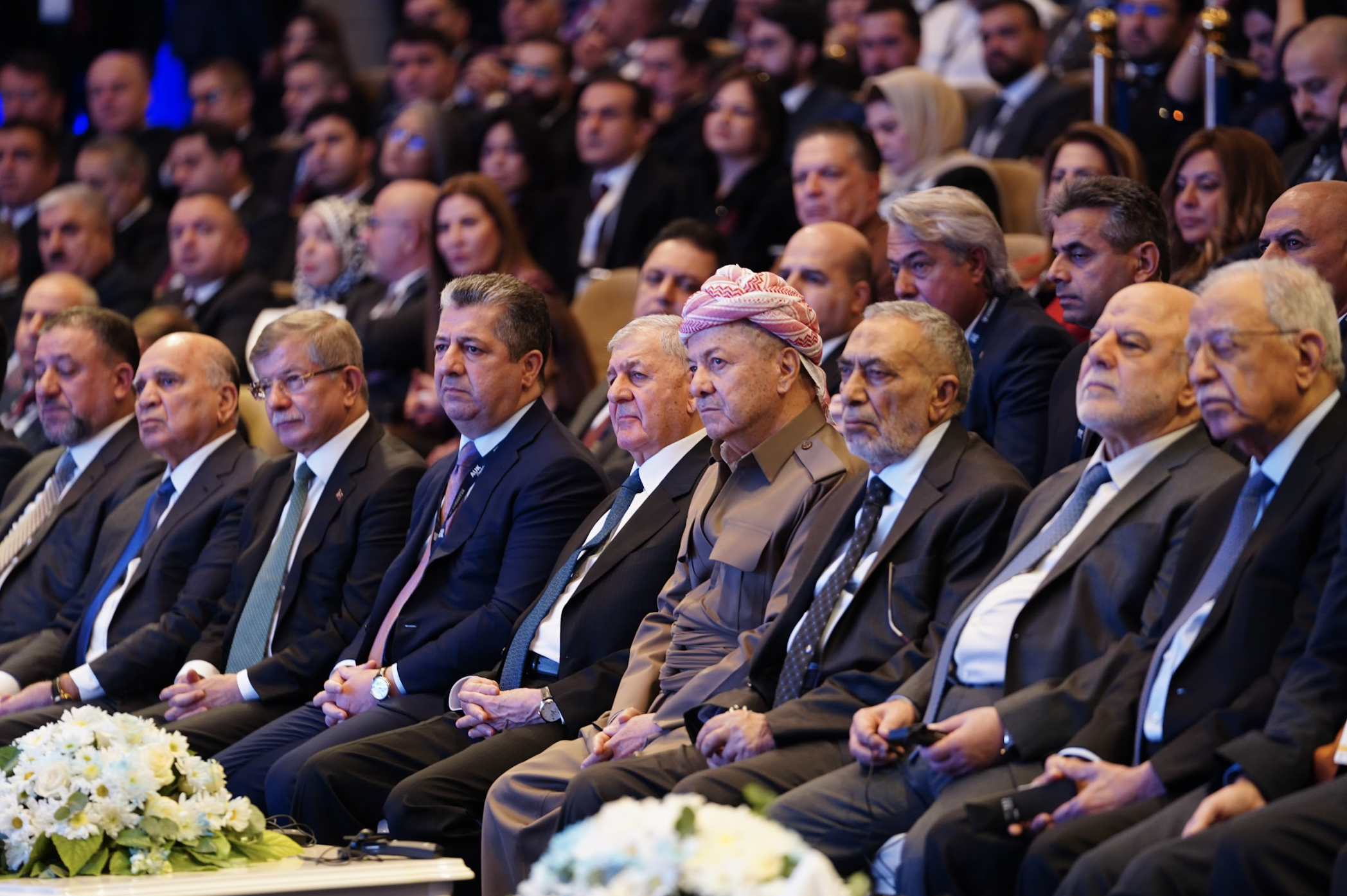
A special community
Christine Cheng, a Senior Lecturer in War Studies at King’s College London, thanked the AUK for creating a space for dialogue at the MEPS Forum. “You have been absolutely fantastic hosts, every time I come to MEPS, I have been warmly welcomed by everyone in Kurdistan.”
“I want to thank you Honar Issa for putting all this together, Ranj Alaaldin, and of course Prime Minister Barzani for all his investment, time, energy, and presence, which allows us to have this kind of dialogue. You have created something very special. I have said this to a lot of people, not only here, but also back in the UK where I teach.”
Issa, Chair of the MEPS Forum, said in his closing remarks that the forum was “delighted to welcome back so many of our most loyal participants this year and to see so many new colleagues join this community of ours.”
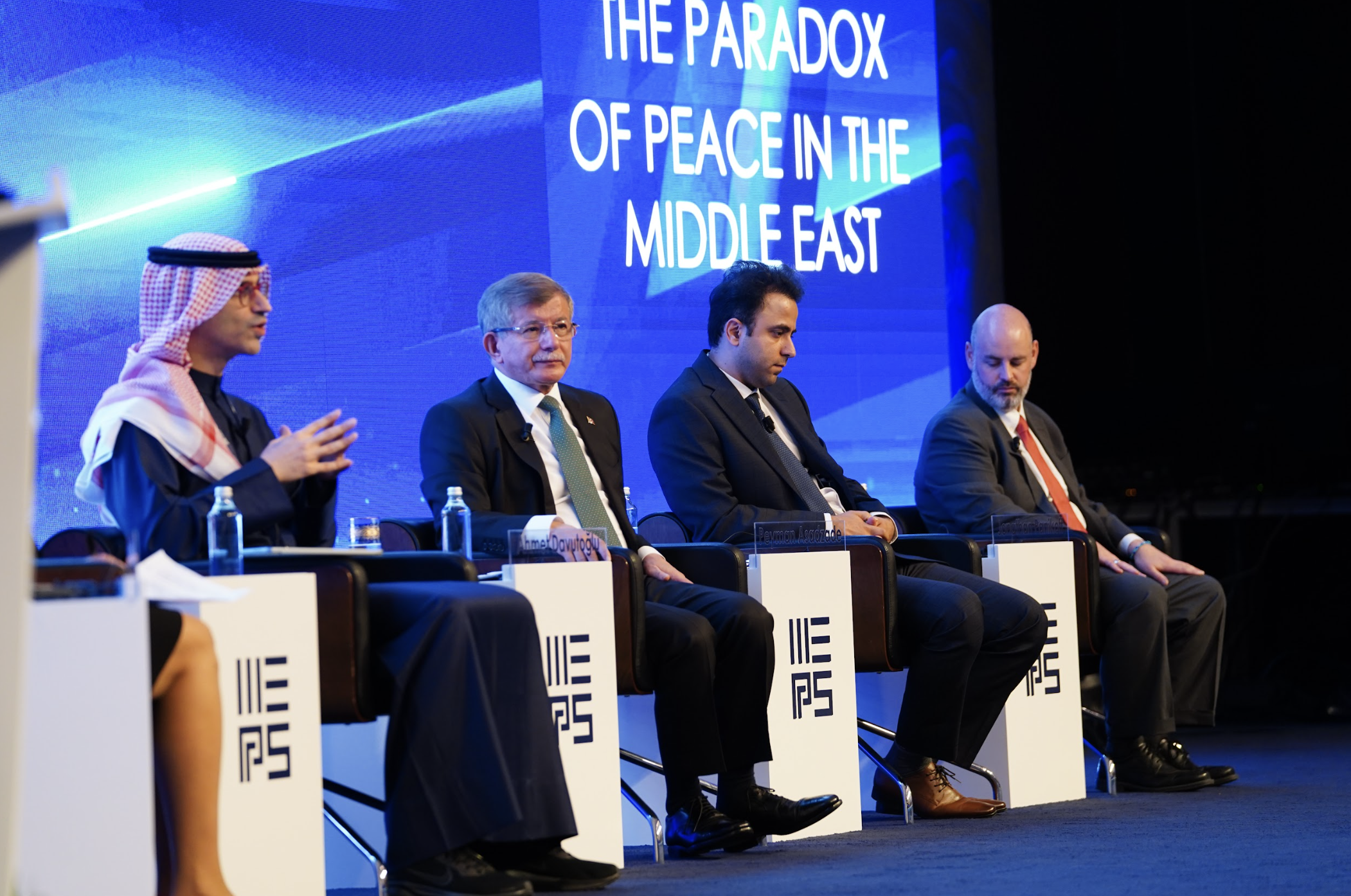
“I’m proud to stand here today and declare that the MEPS Forum has once again exceeded our expectations, with the diversity of the participants and the expertise that they bring as well as the quality and depth of the discussions that unfold.”
He underlined that insightful discussions, thought provoking debates, and rigorous analysis are crucial to addressing the most pressing challenges facing the Middle East at large.
The forum also included workshops organized in collaboration with Harvard University, Cambridge University, the Atlantic Council, Wilton Park, and the Crisis Response Council
“The MEPS Forum was established for the purpose of bridging the gap between decision-makers and the wider community of experts, scholars, and practitioners, and challenging conventional thoughts and wisdom on the Middle East at large,” he concluded.
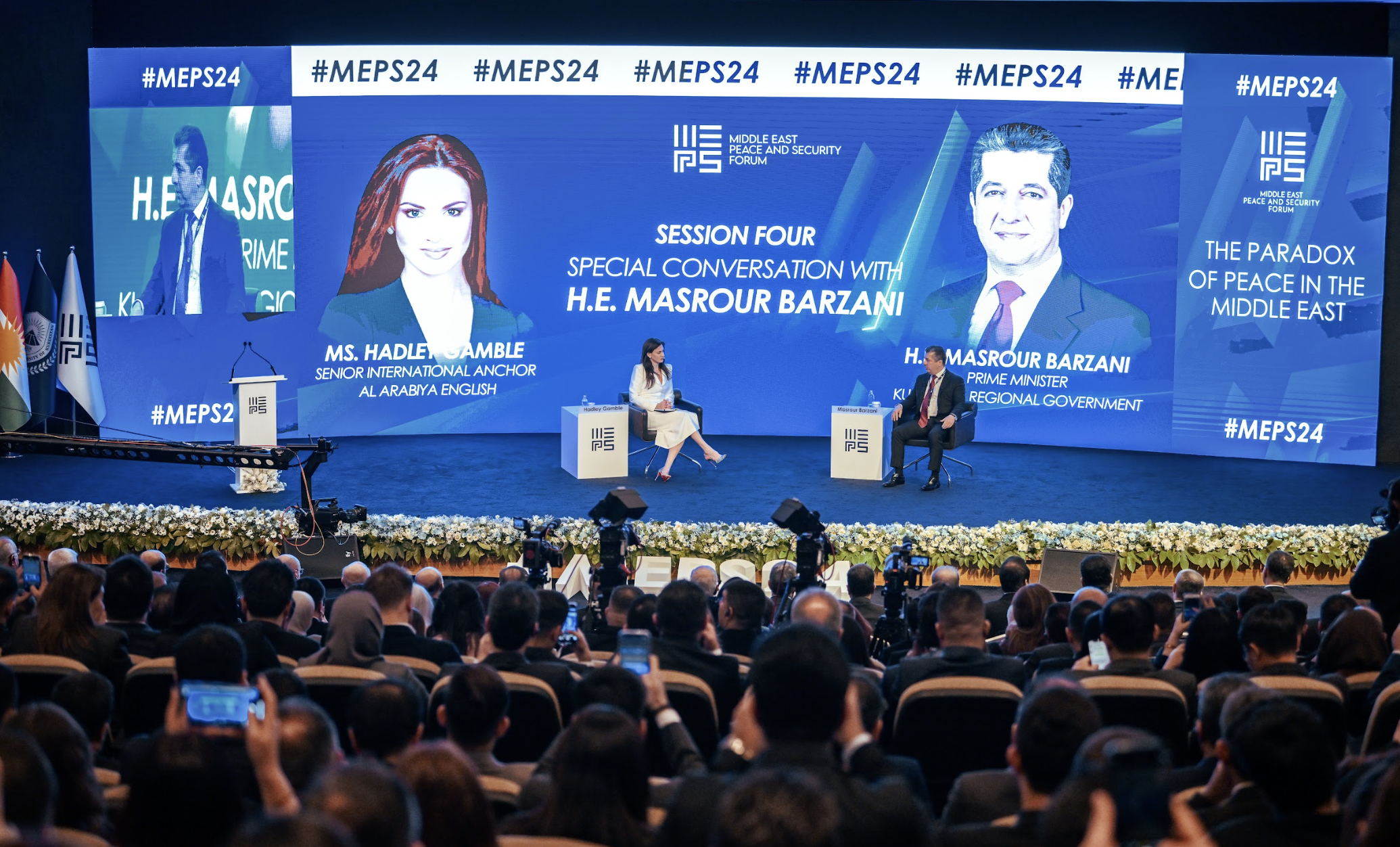
Convening ground
Howard Shatz, a senior economist at RAND and a professor at the Pardee RAND Graduate School, told Kurdistan Chronicle that MEPS had a very interesting program this year, as in past years.
“The program is excellent, the speakers are excellent, but I think what’s most important and what makes MEPS so attractive is that it serves as a convening area. Anyone from inside and outside the region can come, creating opportunities for Americans to meet with Russians or people of Iranian origin to meet with people from throughout Iraq and elsewhere. It‘s an opportunity for people throughout the Middle East to convene with each other on neutral ground.”
Shatz further underlined the importance of MEPS being held in the Kurdistan Region. “It’s a reminder about the incredible diversity of the region. We do not need to make this a uniform region – there are many different people here, all with different goals and desires – and so for peace truly to be forged, these different goals and desires need to be recognized.”
Wladimir van Wilgenburg is a seasoned reporter and analyst who specializes in Kurdish affairs, and holds a Master’s degree in Kurdish studies from Exeter University, UK.
